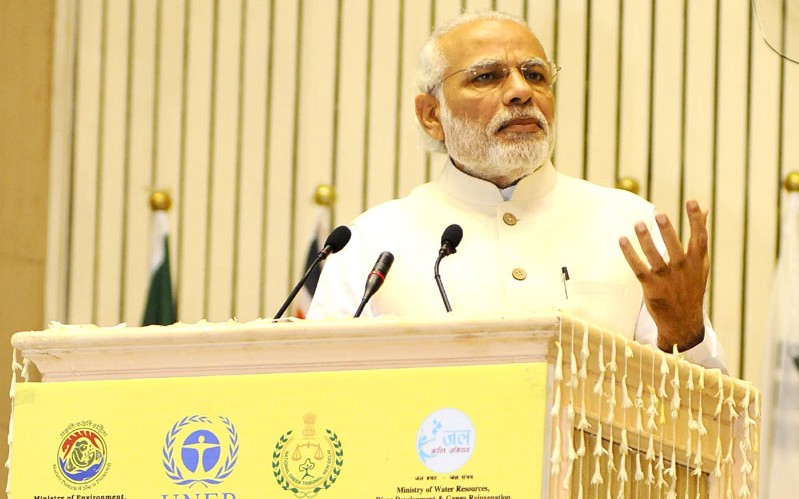- Role of Rules and Laws in achieving Sustainable Development:The role of rules and laws in achieving sustainable development goals is going to be very important in the days to come. However, rules should be such that they facilitate the achievement of these goals. Unfortunately, some times, the concern for environment is defined narrowly. We all have to realize that if there is conflict, no one’s purpose will be served.
The problems of environment are largely the effect of our consumptive lifestyles. If we want to make a meaningful impact, we all need to look within; before we read the books of law.
Indian way of looking at Sustainable Development:
I have always felt that anything which is not sustainable cannot be called development. In our culture, development means ‘बहुजन हिताय, बहुजन सुखाय’, ‘सर्वे भवन्तु सुखिनो’ and “लोकाः समस्ताः सुखिनो भवन्तु’. This cannot happen unless the development process is inclusive and sustainable. Anything which compromises on the ability of future generations to meet their requirements cannot be called development. We in India have always believed in sustainability. For us, the law of nature holds great value. If we all observe it, then many man-made laws will not be required. Only the practice of सह जीवन and सह अस्तित्व will be enough to help us. In modern terminology, there is a word called stakeholder. A path becomes sustainable, if all stakeholders are benefitted. However, I must add a word of caution here. The stake should be natural. It should be inherent. It cannot be stretched to include those who may be working with ulterior motives. Nature is pure. Hence, only pure intentions can keep it intact.
Nature is an integral part of Indian culture:
We, in India, have a strong tradition of living in harmony with nature. We worship nature. We worship the sun, the moon, rivers, land, trees, animals, rain, air and fire. These elements of Nature have been given the stature of Gods in our culture. Moreover, in Indian mythology, most of the Gods and Goddesses are associated with an animal and a tree. Thus, respect for Nature is an integral part of our culture, and has been passed across generations. Protection of environment comes naturally to us. This strong tradition has been a guiding principle for all of us.
We always pray for welfare, peace, fulfillment and sustainability of all; at all places and for all times.
The ideas of YAM, NIYAM, PRATYAHAR teach us discipline, austerity and control.
Collective efforts are required and conflict of interest should be avoided:
The problems we face in India today are not unique. Other civilizations have also faced similar problems and were able to overcome them. I believe that through our collective efforts we will succeed as well. While doing so, we must ensure that we avoid contradictions between our need to develop and develop sustainably. Our culture teaches us Union between the व्यक्ति and समस्ती. If we become one with the universal order, there are no conflicts of interest.
Why we need Climate Justice:
The rule of law dictates that no one can be punished for another’s misdeed. We need to recognize that there are many people who are least responsible for the problem of climate change. They are also the people who still wait for access to modern amenities. They face the adverse impact of climate change more than anyone else. This includes cyclones, droughts, floods, heat waves, and rising sea levels. The poor, vulnerable and marginalized groups have fewer resources to cope with climate disasters. Unfortunately, their present and future generations are also burdened by laws and agreements on environment. That is why I talk about Climate Justice. Moreover, the rules, laws, practices and principles of one country cannot be applied to another uniformly. Every country has its own challenges and its own ways of dealing with them. If we apply the same set of rules for all countries and for all people; it will not work.
(The views expressed are the author's own and do not necessarily reflect the position of the organisation)

